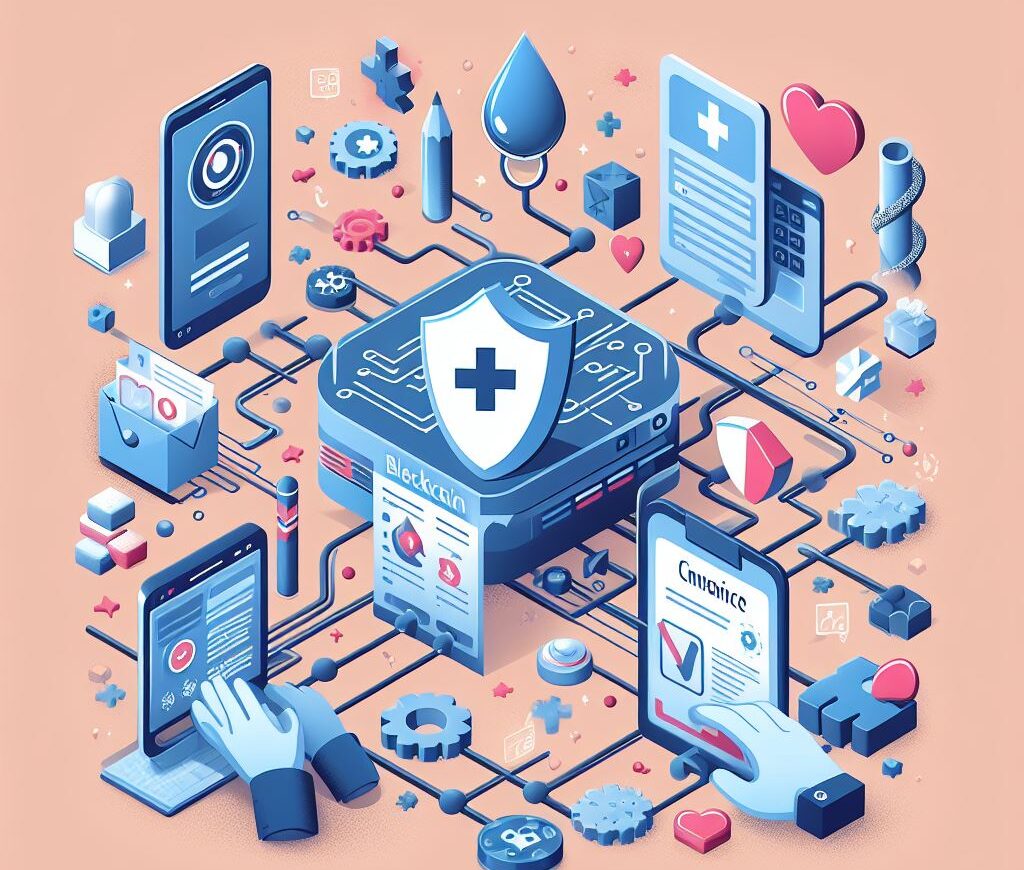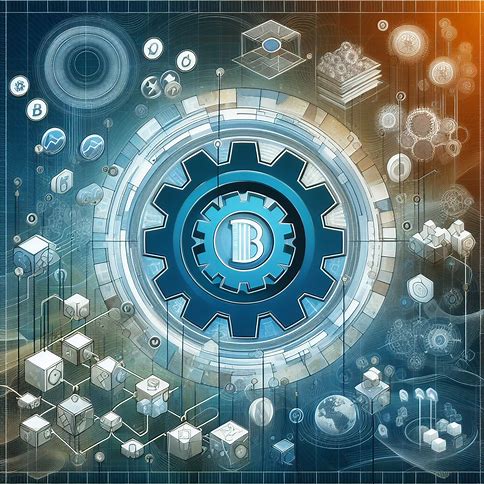There are many challenges to data security, interoperability and patient privacy in the healthcare industry. Here’s how blockchain technology can be used to solve these problems and enhance the systems currently in place.
1. Ability to Create a Single, Unified Patient Record
One of the main benefits of blockchain in healthcare is its ability to create a single, unified patient record. Currently, patient data is often scattered across multiple systems and providers, making it difficult for doctors to access a complete picture of a patient’s health history.
With blockchain, all of a patient’s medical records can be stored on a single, secure ledger that is accessible to authorized parties.
This not only improves the quality of care by giving doctors a more comprehensive view of a patient’s health, but it also empowers patients to take control of their own medical data.
Patients can grant or revoke access to their records as they see fit, ensuring that their privacy is protected.
2. Simplify Clinical Trials and Research
By creating a secure, transparent platform for sharing data, blockchain can help researchers access the information they need to develop new treatments and therapies.
For example, a blockchain-based system could allow patients to consent to share their medical data with researchers, while still maintaining control over how that data is used. This could accelerate the pace of medical research and bring new treatments to market faster.
3. Combat Fraud and Abuse in the Healthcare System
By creating an immutable record of all transactions, blockchain makes it much harder for bad actors to alter or falsify medical records for financial gain.
In addition, blockchain can improve the efficiency and accuracy of claims processing and billing. By automating these processes on a secure, transparent platform, healthcare providers can reduce errors, speed up payments and lower administrative costs.
Related: Blockchain and Intellectual Property Rights
Challenges to the Use of Blockchain Technology in Healthcare
Despite these benefits, there are still challenges to the adoption of blockchain technology in healthcare. One of the biggest obstacles is interoperability (ensuring that different blockchain systems can communicate and share data with each other).
To address this issue, organizations like the Healthcare Blockchain Consortium are working to develop standards and protocols for blockchain in healthcare. These efforts aim to create a common framework that will allow different blockchain systems to work together seamlessly.
Another challenge is regulatory compliance. Healthcare is a heavily regulated industry, and any new technology must comply with a complex web of laws and regulations around patient privacy, data security and more.
Examples of Blockchain Use Cases in Healthcare
According to a recent report by BIS Research, the global healthcare blockchain market is expected to reach $5.61 billion by 2025, growing at a compound annual growth rate of 63.85% from 2018 to 2025.
Many startups and established healthcare companies are already exploring blockchain solutions. For example, Medicalchain is using blockchain to create a secure platform for storing and sharing electronic health records. The company has partnered with the Mayo Clinic and other major healthcare organizations to pilot its technology.
Another startup, Patientory, is using blockchain to create a patient-centered health information exchange. The platform allows patients to securely store and share their medical data with providers, while also giving them the ability to monetize that data if they choose.
In the pharmaceutical industry, companies like Novartis and Merck are exploring blockchain for drug supply chain management. By creating a transparent, immutable record of each step in the supply chain, from manufacturing to distribution, blockchain can help prevent counterfeit drugs from entering the market and improve patient safety.
Blockchain is also being used to improve clinical trials. Platforms like Triall are using blockchain to create a secure, transparent environment for conducting clinical trials, with the goal of improving data quality, reducing costs and speeding up the drug development process.
Key Takeaways
1. Blockchain technology provides a secure, decentralized platform for storing and sharing medical data, addressing challenges such as data security, interoperability, and patient privacy.
2. A unified patient record created using blockchain improves the quality of care by providing doctors with a comprehensive view of a patient’s health history while empowering patients to control their medical data.
3. Blockchain can simplify clinical trials and research by creating a secure, transparent platform for sharing data, accelerating the development of new treatments.
4. The technology can help combat fraud and abuse in the healthcare system by creating an immutable record of all transactions.
5. Blockchain can improve the efficiency and accuracy of claims processing and billing, reducing errors, speeding up payments and lowering administrative costs.
6. Challenges to widespread adoption include interoperability issues and regulatory compliance, but organizations are working to develop standards and protocols to address these concerns.
7. The global healthcare blockchain market is expected to reach $5.61 billion by 2025, with startups and established companies already exploring various solutions.
8. Blockchain is being used in the pharmaceutical industry for drug supply chain management, improving patient safety by preventing counterfeit drugs from entering the market.
9. Platforms like Triall are using blockchain to create a secure, transparent environment for conducting clinical trials, aiming to improve data quality, reduce costs and speed up the drug development process.
Frequently Asked Questions
1. How can blockchain improve patient data management?
Blockchain enables the creation of a single, unified patient record that can be securely accessed by authorized parties. This improves the quality of care by providing doctors with a comprehensive view of a patient’s health history while empowering patients to control their own medical data.
2. How does blockchain combat fraud and abuse in healthcare?
By creating an immutable record of all transactions, blockchain makes it much harder for bad actors to alter or falsify medical records for financial gain.
3. What are some of the challenges to widespread adoption of blockchain in healthcare?
Interoperability issues, regulatory compliance, technical hurdles and resistance to change within the industry are some of the main challenges to adoption of blockchain technology in healthcare.
4. What are some examples of companies using blockchain in healthcare?
Startups like Medicalchain and Patientory are using blockchain to create secure platforms for storing and sharing electronic health records. In the pharmaceutical industry, companies like Novartis and Merck are exploring blockchain for drug supply chain management.
5. How can blockchain benefit the pharmaceutical industry?
By creating a transparent, immutable record of each step in the drug supply chain, from manufacturing to distribution, blockchain can help prevent counterfeit drugs from entering the market and improve patient safety.
6. What are some of the technical challenges to widespread blockchain adoption in healthcare?
Scalability, interoperability, and the development of user-friendly interfaces are some of the technical hurdles that need to be addressed to enable widespread adoption of blockchain technology in healthcare.
7. What are the potential risks or drawbacks of using blockchain in healthcare?
Potential risks and drawbacks include the need for significant upfront investment, the complexity of implementing and maintaining blockchain systems and the possibility of unintended consequences or new security vulnerabilities.
8. How can blockchain help with supply chain management in healthcare?
By creating a transparent, immutable record of each step in the supply chain, from manufacturing to distribution, blockchain can help prevent counterfeit medical products from entering the market, improve inventory management and streamline logistics.










